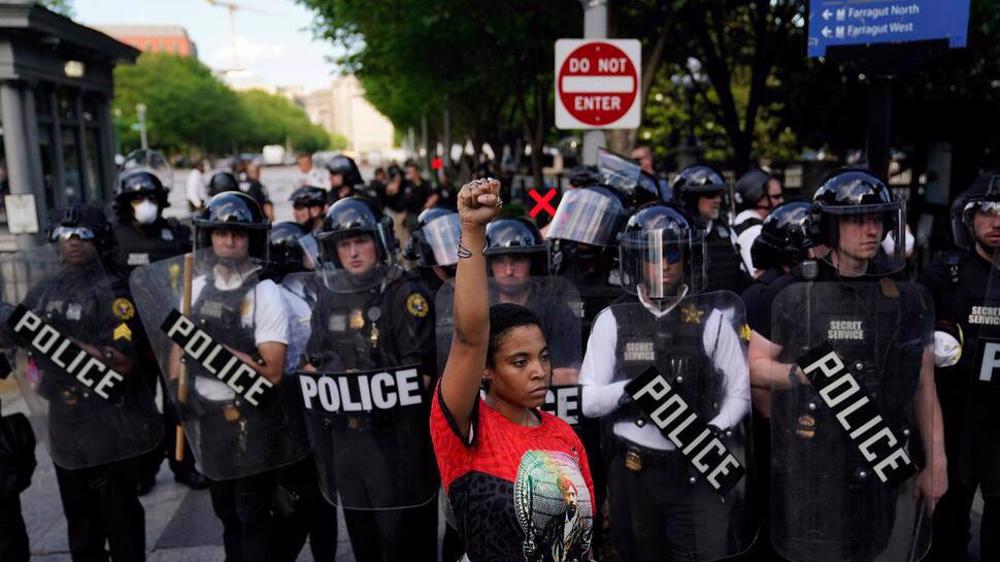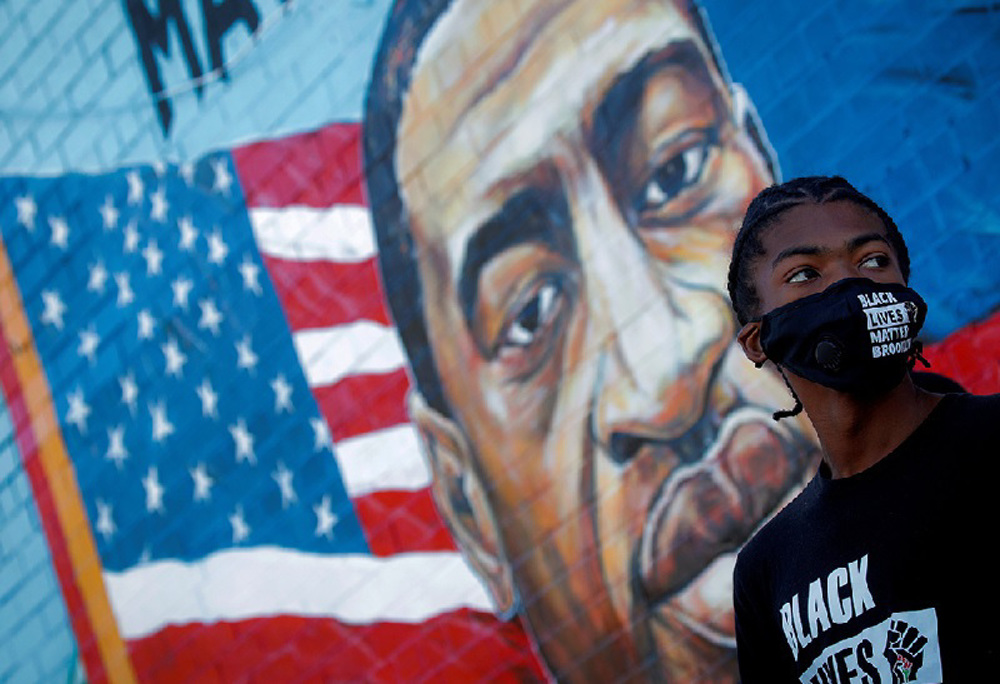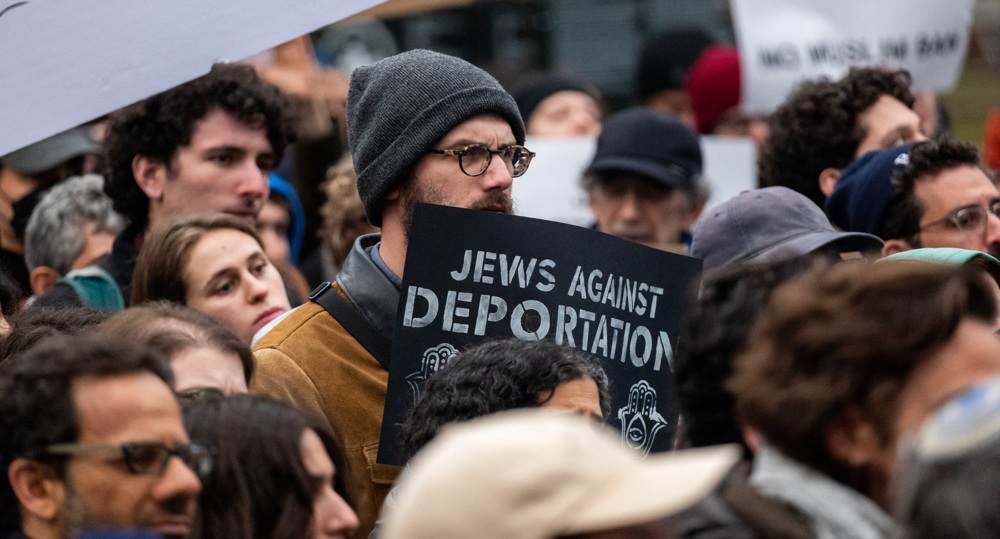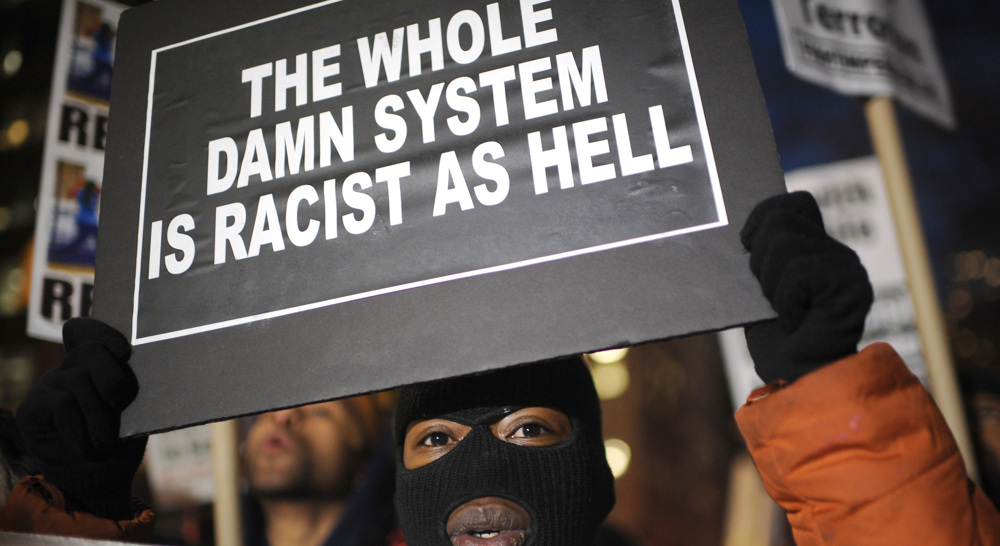Systematic racism pervades US police and justice system: UN
The rights investigators from the United Nations say that they have found systematic racism being practiced against Black people throughout the policing and justice systems of the United States, stressing the urgent need to reform the system.
In a report released on Thursday, the rights investigators of the UN referred to “the entrenched systemic racism against people of African descent in the United States” saying that “(this) legacy of slavery ... permeates the entire spectrum of the law enforcement and judicial system."
The report comes after a 12-day visit in April and May by the UN team to the United States. The team visited various detention centers and met victims, civil groups, the judiciary, police unions and officials in the states of Atlanta, Chicago, Los Angeles, Minneapolis, New York and Washington.
“In all the cities we went to, we heard dozens of heart-breaking testimonies on how victims do not get justice or redress. This is not new, and it’s unacceptable,” said Tracie Keesee, an expert member of the UN group.
The report brought to light the fetid American system in which Black people are three times more likely to be killed by police than whites, and 4.5 times more likely to be jailed.
According to the report, racism in the United States exists as a legacy of slavery, the slave trade, and one hundred years of legalized apartheid that followed slavery’s abolition and continues even today in the form of racial profiling, police killings, and many other human rights violations.
Pointing to the discriminatory system of the United States the United Nations report said that more than 1,000 cases of killings by the US police are reported each year and only 1% result in officers being charged.
“We reject the “bad apple” theory. There is strong evidence suggesting that the abusive behavior of some individual police officers is part of a broader and menacing pattern,” said Juan Mendez, another expert investigator of the UN group.
“Law enforcement and criminal justice institutions in the United States share and reproduce values, attitudes and stereotypes of US society and institutions. These must be reformed,” Mendez added.
The report also voiced concern over inhumane instances of children of African descent being sentenced to life imprisonment, pregnant women in prison being chained during childbirth, and persons held in solitary confinement for 10 years.
The report laid bare the problematic US system in which some people of African descent have been prevented from voting years after completing their sentences and some are subjected to forced labor in “plantation-style” prisons, which according to the UN constitutes a contemporary form of slavery.
“The testimonies and figures we received represent the worst part of a racist criminal justice system that erodes all efforts towards addressing systemic racism,” Mendez said.
”This is a systemic issue that calls for a systemic response. All actors involved, including police departments and police unions, must join forces to combat the prevailing impunity," Keesee added.
The report has warned that if the legal and police system of the US is not reformed in accordance with international standards, many of these killings will continue.

This UN team of independent experts was formed in 2021 one year after the murder of George Floyd, an African American, by a white US police officer.
As per the data collection website Statista, 112 black people have been killed by the US police as of June 2023.
Blacks account for roughly 14 percent of the U.S. population and are killed by police at more than twice the rate of White Americans.

US detains pro-Palestine university student after revoking her visa

Racist Trump policies rekindle white supremacy

Pro-Palestine students demand release of Georgetown Univ. researcher
More journalists killed in Gaza than in both World Wars combined: Report
US lawmakers move to block arms sales to Israel amid Gaza war
Turkey readies plans to take over Syria’s T4 airbase: Report
VIDEO | Press TV's news headlines
Iran condemns Israel’s continued aggression against Lebanon
VIDEO | Iran Islamic Republic day
Yemeni forces attack US aircraft carrier with cruise missiles, drones
Germany set to deport four foreign pro-Palestine protesters







 This makes it easy to access the Press TV website
This makes it easy to access the Press TV website